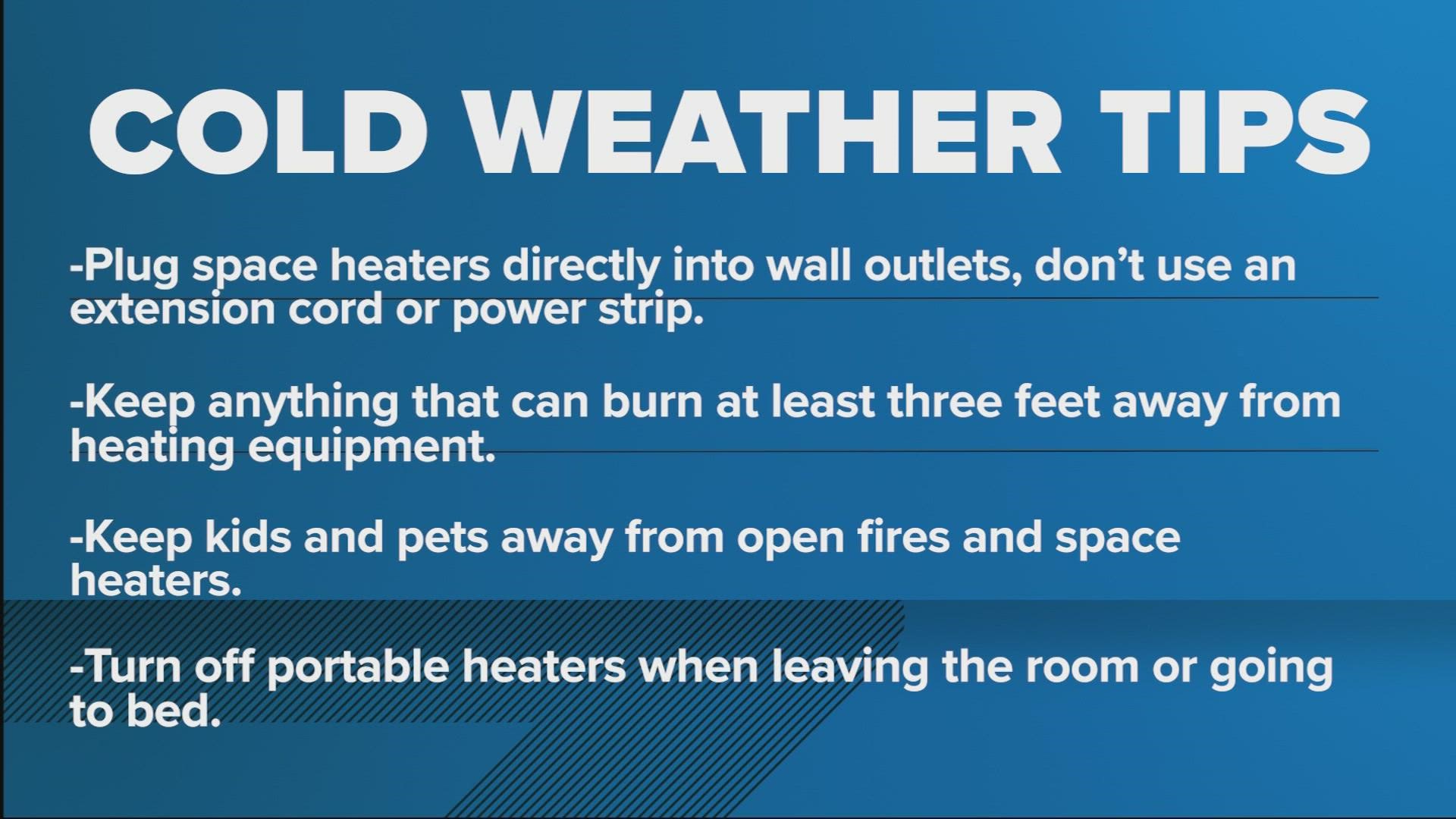HOUSTON —
People
When the weather turns bitterly cold, the most important thing is to protect yourself by any means necessary.
On the coldest days, make sure to bundle up with multiple layers. Make sure to have a heavy winter coat when the temperature dramatically drops. Also, protect your head with a winter hat. Warm air escapes your body from your head, so the head is the most important part of your body to protect. As all skin is important to keep warm, make sure to bundle up with gloves on your hands and also, a scarf on the most bitter days.
Another big concern that comes with cold weather is carbon monoxide poisoning. No matter how cold it gets, do not bring your grills or generators inside. You should also never use your oven to heat your home.
If you’re going to use a space heater, plug it directly into the wall. Don’t use an extension cord or power strip. Keep anything that can burn at least 3 feet away.
Pets
On the coldest days, make sure to not forget about your four-legged friends.
Make sure to bring pets inside where it is warm.
If you have other animals or livestock, move them to a sheltered area and make sure they have plenty of food and water.
If it’s too cold for you, it’s too cold for your animals, too.
Plants
There are some easy steps you can take to make sure your outdoor plants survive the cold.
If you can, bring them inside your house or put them in the garage. If that isn’t an option, make sure they’re covered. Experts say to avoid using a trash bag as a covering. Towels or blankets work best secured with tape.
Pipes
When the temperature drops below 32 degrees, pipes can freeze and burst.
Make sure to protect your outside pipes with a cover.
Consider covering pipes with insolation or using a heat lamp to prevent them from freezing. Anything that is not more than 12 inches below ground is likely to freeze. It is also helpful to disconnect hoses and disconnect any sprinkler or drip lines you might have.

